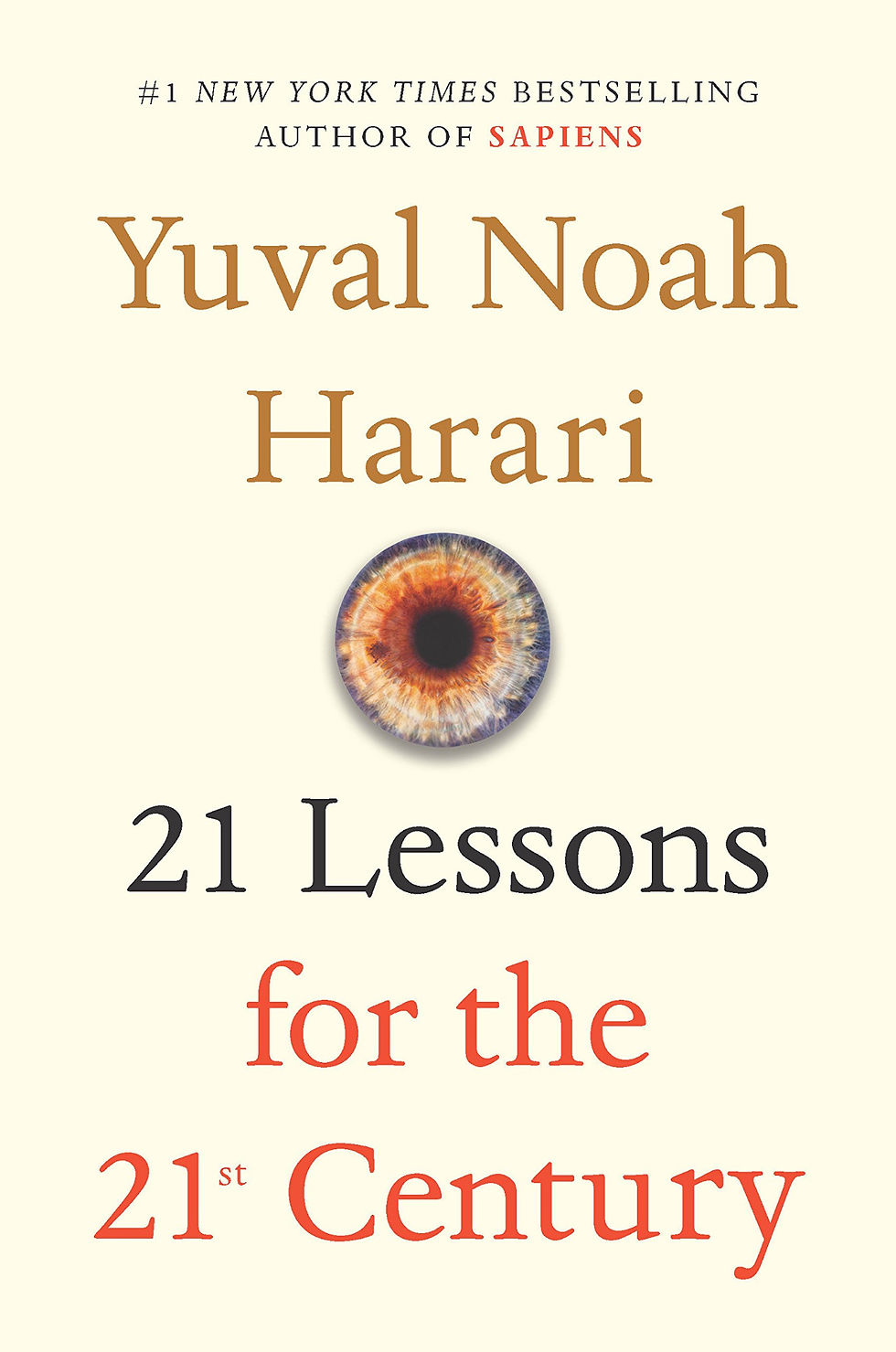21 Lessons for the 21st Century
- Clim8Delta

- Feb 11, 2021
- 3 min read
Updated: Mar 20, 2021
By Yuval Noah Harari

This book presents a dystopian outlook on the future of the civilization of humankind. Yuval Noah Harari goes into some depth regarding the rise of AI and the new currency of the world, big data.
A large portion of the book is devoted to that infringement of privacy for the sake of improved convenience and efficiency for individuals and corporations alike.
The book mentions climate change in a passing matter whereby it is stated that big data may be able to be used in the fight against it.
This may seem like a wonderful thing that such an esteemed writer and thinker believes that we are on our way to potentially creating something that will be able to aid us in our fight against climate change however the flip side of this is would be the significantly reduced autonomy and privacy of individuals.
It is stated time and time again throughout the book that technology is the ultimate disruptor. It disrupts our understanding of our place in the world, it disrupts our social norms and interactions and it disrupts how we as a people view ourselves. Based on this I don't think that it would be too much of a stretch to expect technology to disrupt our archaic reliance on fossil fuels and non-renewable methods. There is lots of talk today in the media about futuristic technologies which would help alleviate issues we currently face regarding climate change however talk is cheap but action is not.
The book also highlights the fact that the more specialized our skillsets become, the less we actually know about the world. Think of today's engineers, scientists, builders etc. It's hard for them to be highly skilled and one specific facet of their industry. My background is in civil engineering and so I can attest to what I see in the field. Someone with 10 years of structural engineering experience will find it difficult to suddenly switch to drainage engineering even though both types are under the umbrella of civil engineering. What would be even more difficult for them is to move into a related field civil engineering (e.g., one of the sciences). I think back to the days of the Renaissance where renaissance men existed. These are people who were well versed in many different industries ranging from arts, biology, physics, history, engineering etc... This is not to say that the people back then were smarter than us today, to share volume of information someone can now learn often takes a lifetime to master. This means people are becoming ever more specialized due to the nature of our surroundings. An easy way to think of this is to think of a factory line, organization actually popularized by McDonald’s when they introduced it to the fast-food sector. I do my job many times a day so that the person after me can do their job many times a day so the third person could do their job many times a day so and so forth. We are all cogs in the machine so it is easy for us to not understand the whole picture.
This point is especially important for the fight against climate change as all too often people who are not too well versed in the topic, yet they mean well, find ‘faults’ in the solutions that the experts are producing and faulting some policies that governments are putting out for not being ambitious enough. Now I'm not saying all solutions or policies are perfect, in fact I am of the opinion that most policies being put out there are not extensive enough I'm not radical enough should effectively mitigate temperature rise. But not understanding the whole picture that you don't know why this decision was made and what the actual faults of this technology or policy is.
For instance, if you disregard politics and economics from the picture climate change would seem like a relatively easy issue to solve. We only need to swap our dirty fuel sources to clean energy, and plant more trees to absorb the extra carbon and atmosphere. This is however not the reality we live in and there are many more sides to the problem at hand.
All in all, this book provides a very interesting view of the future showing us there many benefits of technology and will provide the reader of a clearer understanding of the future along with it falls that people often do not realize might exist. It is not a climate change based focused book let's have many ideas which are directly related to the fight against climate change.



Comments